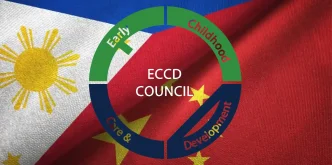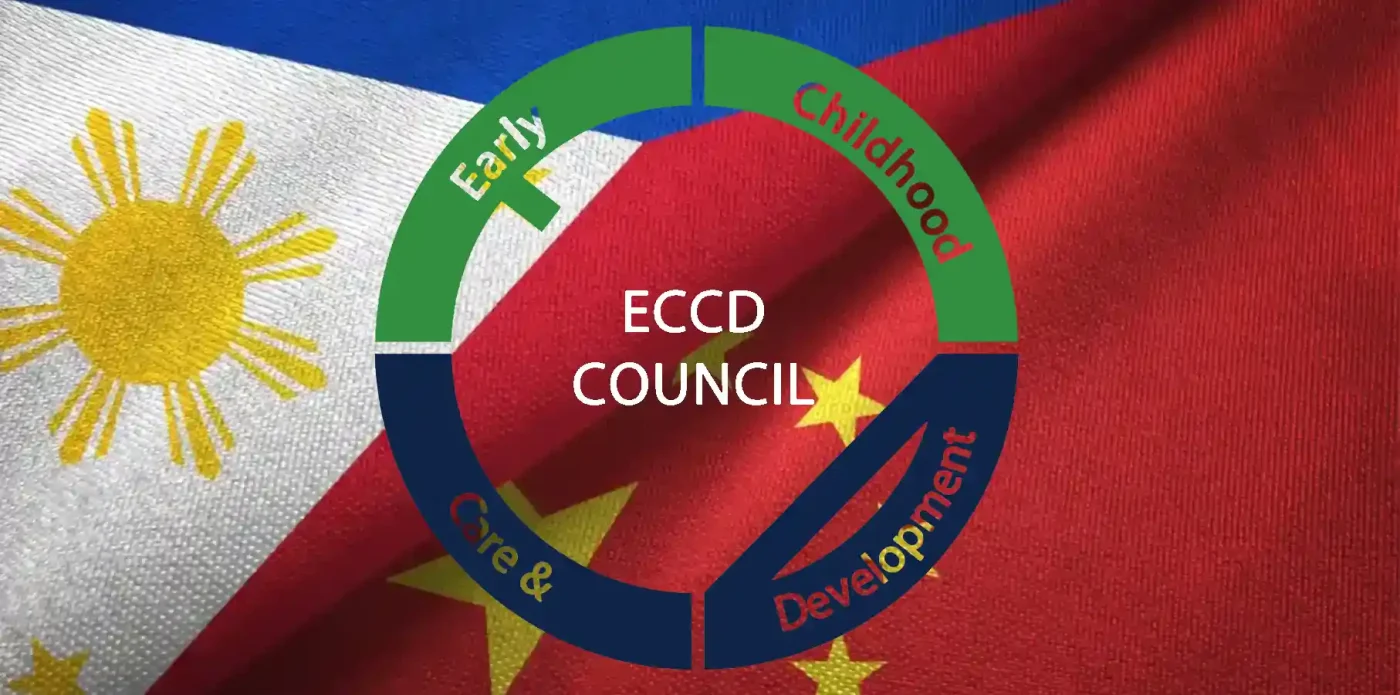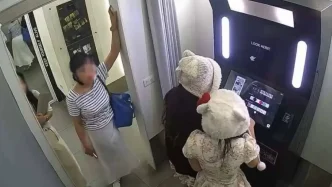In a significant move for family welfare, Philippine President Ferdinand Marcos Jr. has signed into law a measure aimed at strengthening childcare services for children aged 0 to 5. The legislation, enacted amidst a backdrop of rapid political developments, including the fastest election canvassing in the country’s history and former President Rodrigo Duterte’s ongoing legal battles with the International Criminal Court (ICC), signals a focus on social policy even as political tensions simmer. The new law promises to enhance early childhood development, a critical issue in a nation where poverty and access to basic services remain persistent challenges.
New Childcare Law: A Step Forward for Families
The recently signed law, officially titled the Early Childhood Care and Development (ECCD) System Act, mandates the establishment of comprehensive childcare programs for the youngest Filipinos. It targets children from infancy to age 5, a crucial developmental window, by ensuring access to nutrition, health services, and early education through community-based centers. The legislation also allocates funding for training caregivers and educators, aiming to professionalize the sector.
President Marcos, speaking at the signing ceremony in Manila on May 20, 2025, emphasized the long-term benefits of the initiative. “Investing in our children at the earliest stage is investing in the future of the Philippines” he stated, highlighting the law’s potential to reduce inequality. The administration estimates that over 5 million children could benefit from the program within the first five years of implementation, particularly in underserved rural areas and urban slums.
However, questions linger over funding and execution. Critics, including opposition lawmakers, have pointed out that the national budget for 2025 allocates only a modest sum for the ECCD rollout—approximately 2.5 billion Philippine Pesos (US$45 million)—potentially insufficient to meet the ambitious targets. Local governments, already stretched thin, are expected to shoulder much of the operational burden, raising concerns about uneven implementation across the archipelago.
Political Context: Record-Breaking Election Canvassing
The signing of the childcare law comes on the heels of a historic political milestone: the fastest canvassing of election results in Philippine history. Following the midterm elections held on May 12, 2025, the Commission on Elections (Comelec) completed the tallying of votes in just under 72 hours, a stark contrast to previous years when the process often dragged on for weeks due to manual counting and logistical delays.
Comelec Chairperson Maria Lopez attributed the unprecedented speed to advanced digital voting systems and improved transparency measures. “This is a triumph for democracy and technology” she declared during a press conference on May 15, 2025. The rapid canvassing has bolstered public confidence in the electoral process, though some civil society groups have called for an independent audit to ensure accuracy, citing past allegations of irregularities.
Analysts suggest that the swift election results could strengthen Marcos’s political capital, as his allies secured key positions in Congress. This momentum may provide a favorable environment for pushing forward social reforms like the ECCD Act. Yet, the political landscape remains volatile, with opposition figures questioning whether the administration is using social policy to deflect attention from deeper governance issues.
Duterte’s ICC Battle: A Shadow Over Marcos’s Agenda
Adding complexity to the political scene is former President Rodrigo Duterte’s escalating confrontation with the International Criminal Court. Duterte, whose administration from 2016 to 2022 was marked by a controversial “war on drugs” that left thousands dead, is now seeking to disqualify ICC judges overseeing an investigation into alleged crimes against humanity. On May 18, 2025, Duterte’s legal team filed a motion claiming bias among the court’s panel, a move widely seen as an attempt to delay or derail the probe.
“The ICC has no jurisdiction over me or my country” Duterte asserted in a public statement reported by local media. The Philippines withdrew from the ICC in 2019 under his leadership, though the court maintains it retains authority over crimes committed during the country’s membership period. The ongoing case has polarized public opinion, with Duterte’s supporters viewing the investigation as foreign interference, while human rights advocates argue it is a necessary step toward accountability.
For Marcos, the Duterte-ICC saga presents a delicate balancing act. While the current president has distanced himself from his predecessor’s policies, he has also avoided direct criticism of Duterte, whose daughter, Vice President Sara Duterte, remains a key political ally. Political observers note that Marcos’s administration may face pressure to address the ICC issue more decisively, especially as international scrutiny intensifies. A misstep could alienate either Duterte’s loyal base or reform-minded voters who supported Marcos’s 2022 election on a platform of unity and progress.
Childcare Law in a Broader Social Context
Beyond the immediate political noise, the ECCD Act taps into a pressing need in Philippine society. According to UNICEF data from 2023, nearly 40% of Filipino children under 5 suffer from stunting due to malnutrition, while access to early education remains limited, particularly in remote regions. The new law aims to address these gaps by integrating health, nutrition, and learning programs under a single framework, with oversight from the Department of Social Welfare and Development (DSWD).
Local advocates have welcomed the legislation but caution that its success hinges on community engagement. Maria Santos, a child welfare activist based in Cebu, noted that cultural and economic barriers often prevent families from accessing government services. “Many parents in rural areas are unaware of their rights or unable to take time off work to bring their children to centers” she said. The law includes provisions for mobile childcare units to reach isolated communities, though logistical challenges in areas like Mindanao, where infrastructure is underdeveloped, could hamper efforts.
Economically, the childcare initiative could have ripple effects. By supporting early childhood development, the program may enable more parents—particularly mothers—to rejoin the workforce, potentially boosting household incomes. A 2024 study by the Asian Development Bank estimated that improved childcare access could increase female labor force participation in the Philippines by up to 8% over a decade, contributing to GDP growth. However, without adequate funding and monitoring, such benefits remain speculative.
Regional Implications and International Perspective
The Philippines’ focus on early childhood care aligns with broader regional trends in Southeast Asia, where countries like Vietnam and Indonesia have also prioritized social welfare programs to combat poverty and inequality. Vietnam, for instance, expanded its preschool system in 2023, achieving near-universal enrollment for 5-year-olds in urban areas. The Philippine law could position the country as a leader in early childhood policy within ASEAN, though it lags behind neighbors in terms of public spending on education and health as a percentage of GDP.
Internationally, the Marcos administration’s social agenda may improve its standing with global partners. The United States and European Union, key donors to Philippine development projects, have long advocated for increased investment in human capital. A successful rollout of the ECCD Act could strengthen diplomatic ties and unlock additional aid, though the shadow of the Duterte-ICC case risks complicating relations with Western governments critical of past human rights abuses.
Challenges Ahead for Marcos’s Vision
As the Marcos administration celebrates the passage of the childcare law, the road ahead is fraught with obstacles. Political distractions, including the fallout from Duterte’s legal battles and the need to sustain momentum post-election, could divert resources and attention from social programs. Budget constraints and bureaucratic inefficiencies, perennial issues in Philippine governance, further threaten to undermine the law’s impact.
Public sentiment, as gauged from recent social media discussions on platforms like X, reflects cautious optimism. Many Filipinos express hope that the ECCD Act will deliver tangible benefits for struggling families, though skepticism about government follow-through abounds. “We’ve seen promises before, but where are the results” asked one user in a widely shared post. The Marcos government will need to demonstrate quick wins—perhaps through pilot programs in high-need areas—to maintain public trust.
For now, the signing of the Early Childhood Care and Development System Act marks a hopeful chapter in the Philippines’ ongoing struggle to build a more equitable society. Whether it becomes a cornerstone of Marcos’s legacy or another unfulfilled pledge remains an open question, one that will unfold against a backdrop of political intrigue and societal need.
















